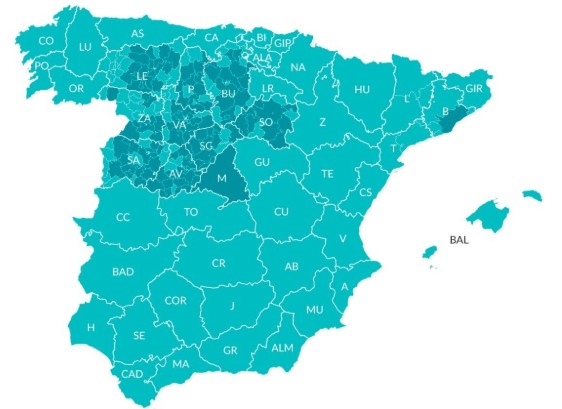Madrid and Barcelona will remain in Phase Zero of the national plan that sees the gradual lifting of lockdown restrictions across Spain while some of the islands will advance to Phase 2.
The whole of the Valencia region and the whole of the Andalusia region will advance to Phase 1 of the plan on Monday May 18 while parts of Castilla y Leon will remain in Phase 0.
The status of each and every province across Spain from Monday is marked in an interactive map produced by Spain’s government.
El próximo lunes, 18 de mayo, varios territorios de España se suman a la #Fase1 del Plan de #Desescalada
Pasarán a la #Fase2 las islas de:
✔️La Gomera, El Hierro y La Graciosa, en Canarias
✔️Formentera, en BalearesConsulta los territorios:https://t.co/y2OW42klrA pic.twitter.com/7qnbPnUuAH
— Salud Pública (@SaludPublicaEs) May 15, 2020
The islands of La Gomera, El Hierro and La Graciosa in the Canary Islands and the island of Formentera in the Balearic Islands will all advance to Phase 2 of the plan. Two weeks ago, these provinces were the first to adopt Phase 1.
READ MORE:
- Lifting lockdown: What you can and can't do during Spain's Phase 1
- A guide to Spain's lockdown rules during Phase Zero
Under Phase 2 larger gatherings – from ten to 15 people – are allowed to take place and large commercial premises are allowed to open to shoppers, although social distancing and hygiene measures must still be maintained.
Madrid’s petition to move forward into Phase 1 was rejected by health authorities who insist that the outbreak has still not met the requirements to allow it loosen restrictions further.
“The evolution of the pandemic is very favourable, but the Madrid region started out with many more cases than other regions,” insisted Fernando Simón, head of the Coordination Center for Health Emergencies announcing the new developments in a televised news conference on Friday evening.
“But even then, it is still the region with the most daily registered cases, together with Catalonia. The Madrid region must remain for another week in Phase 0, out of prudence,” he said
However, in a compromise move both Madrid and Barcelona will see some restrictions loosened in what has been dubbed Phase 0.5 that will see small businesses able to open without the need for prior appointments.
But the terraces of restaurants and bars will remain closed in the two cities and meetings between friends and family must wait at least another week.
It means that 70 percent of Spain has now advanced beyond the preparatory stage while 14 million remain in Phase Zero.
READ ALSO:
- Spain extends international travel ban until June 15th
- What you need to know about Spain's new quarantine rules for travellers



 Please whitelist us to continue reading.
Please whitelist us to continue reading.
Member comments